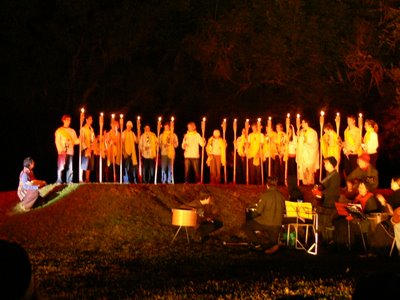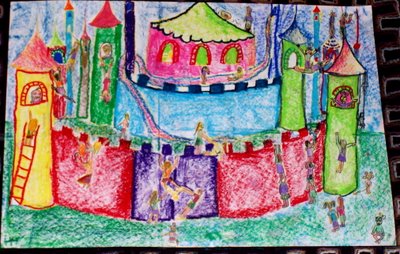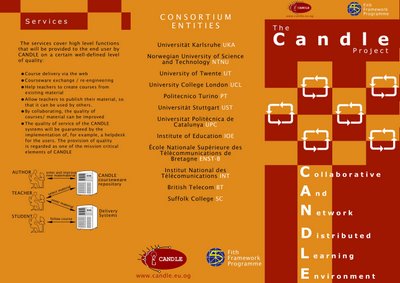Sunday, June 25, 2006
copy paste copy paste copy paste copy paste copy psate copy paste copy paste copy paste copy paste copy paste copy paste copy paste copy paste copy paste copy paste copy paste copy paste copy paste copy paste copy paste copy paste copy paste copy paste............................
ISM
culturalism pluralism deconstructionism hyperisms hypa-isms exceptionalism normalisms proto-type ism subjectivism objectivism polemicism devotee ism locationism liberalism labourism educationism vygotskyism latter day evangalism fruitism foodism candle ism flammatorism ignition postmodernism cubism modernism, pointalism, dadaism dante ism controlism leftism upism flatism virtual lee everythingism constructivism connectivism
try this link
"mccrindlism"
Add your own 'ism'......
try this link
"mccrindlism"
Add your own 'ism'......
"The roots of many constructivist beliefs are traceable to postmodern philosophies which depart from the rationalist, objectivist, and technocratic tendencies of modern society." (Can, Tunker BLOG 2006)

Postmodernism meaning and the validity of multiple perspectives. Key ideas Postmodern philosophy emphasizes contextual construction of include:
--Knowledge is constructed by people and groups of people;
--Reality is multiperspectival;
--Truth is grounded in everyday life and social relations.
--Life is a text; thinking is an interpretive act
.--Facts and values are inseparable;
--Science and all other human activities are value-laden.
Constructivism (Situated-cognition Flavor)
-Mind is real. Mental events are worthy of study.
-Knowledge is dynamic.
-Meaning is constructed.
-Learning is a natural consequence of performance.
-Reflection/abstraction is critical to expert performance and to becoming an expert.
-Teaching is negotiating construction of meaning.
-Thinking and perception are inseparable.
-Problem solving is central to cognition.
-Perception and understanding are also central to cognition.
http://carbon.cudenver.edu/~bwilson/postmodern.html
GENERATION Y & Z CONSTRUCTING EDUCATION

RELEVANCE OF THE CONSTRUCTIVIST APPROACH TO EDUCATION
Q1. DISCUSSION 4134
Q1. DISCUSSION 4134
In this article, you will see I am describing the constructivist approach to education, its relevance to Generation Y & Z students both in learning environments and with regard to their professional development, also touching on some of the ways constructivism in learning is relevant to the philosophy of Rudolph Steiner with regard to the education of children .
The Constructivist Approach to Education covers a large area of pedagogical research and psychological theory with regards to child development and optimum learning environments. By accepting Constructivist theory and its ideals, we describe knowledge as what we construct for ourselves as we learn. This mode of educations’ highest potential empowers the student to be skilful for this digital millennium, self-directed and motivated, goal orientated and goal achieving. Through guidance and facilitation from the educator the student evolves by a combination of synergistic social collaboration on the subject (eg discussion, negotiation, common understanding), and responding to learning environments designed to enhance:
Problem solving
Development of higher order thinking skills
Independent knowledge seeking
Acquisition of self-motivated learning skills and assimilation of knowledge
Understanding of the self through experience and objectivity
The mistake becoming a tool for further enquiry
Interdisciplinary learning
Exposure to a variety of viewpoints: individual and organisational
The ability to discern true authority on information source and content
Moral integrity
The teacher/facilitator is at once a mediator, a learner themselves capable of spontaneous response to what arises within the parameters of the learning environment – a guide to the students for deeper enquiry and through clearly devised scaffolding, a catalyst for the student to reach beyond their view of their own potential; to stretch beyond their comfort zone of understanding.
http://www.cdli.ca/~elmurphy/emurphy/cle3.html
Steiner emphasises that the teacher: the human being who stands in front of the class holds the quality of the educational experience through who they are as an individual and how they have developed themselves and continue to develop themselves. Thus the teacher guides each student through their own action research and self-reflection, bringing life to the content and process of learning herein we see a quintessential parallel between anthroposophy and constructivism.
Constructivist, Piaget maintained a lifelong interest in the field of education, though his published works proliferated in other areas such as biology, psychology, epistemology and logic. He spent many years as the director of the International Bureau of Education (IBE). (Ducret, Jean-Jacques 2001) Jean Ducret a close friend of Piaget also writes.....
“The idea probably closest to his heart was that educationists, while drawing on genetic psychology and other relevant sciences should independently carry out research enabling them to establish both a teaching system and the methods most appropriate to the goals envisaged.”
The relevance of Piaget’s understanding of Constructivism to today, in relation to education, is most pertinent in that he encourages the development of intelligence and all-round culture taking precedence over the acquisition of specialised knowledge. Generation Y prioritise their social needs and are multi-skilled and multi-tasking.
The lives of Generation Y (those born between 1980 and 1994 inclusive) are a mosaic of different roles, phases and careers. Today average retention rate per job per employee is just 4 years compared to 1959 when the Longitudinal Labour Market Study showed an average job retention rate of 15 years. 21st Century life is rarely linear and sequential. (McCrindle, Mark 2006 see "mccrindlism" hyperlink under Blog post ISM) Constructivist educational environments reflect our times; Generation Y are being educated now. The world ahead requires flexibility, lateral thinking, emotional literacy, competent ICT skills and more.
The nature of learning provoking the desire to learn more inherent in a Constructivist Education is supported by statistics –“89.6% of Generation Y agreed that if they received regular training from their employer it would motivate them to stay longer with the employer". And interestingly the training in relation to work they would like to receive is in the “soft skills” area (presentation skills, management and communication skills etc) as opposed to “hard skills”- technical skills and formal University courses. These “soft/people skills” are transferable across different workplaces and situations. (McCrindle, Mark 2006)
The social learning dynamics required through collaborative learning in a Constructivist educational environment elucidate the nature and individuality of Generation Y and the up and coming Generation Z. I believe these young adults, adolescents and children will need the ability to discern and commit to ethical choices to sustain our environment, both ecologically and socially.
From the following summation of Piaget’s thinking and suggestions in the education field (Ducrat, Jean-Jacques 2001), the importance and relevance of these guidelines in relation to the learning needs of Generation Y can easily be seen:
Creation of school careers - put off selection as long as possible to allow students potential to become sufficiently clear
Postpone specialisation as long as possible by teaching basic programmes
Maximise development of student’s intelligence and all-round culture to assist him manage large number of problematic situations and make a more organic whole of the different practical, technical, scientific and artistic aspects of social life
Teachers be trained in methods that increase awareness of the intellectual and moral development of pupils during childhood and adolescence
Educationist should carry out their own experimental checks as a means of verifying the aptness of methods or procedures to be used in teaching
The Constructivist Approach to Education covers a large area of pedagogical research and psychological theory with regards to child development and optimum learning environments. By accepting Constructivist theory and its ideals, we describe knowledge as what we construct for ourselves as we learn. This mode of educations’ highest potential empowers the student to be skilful for this digital millennium, self-directed and motivated, goal orientated and goal achieving. Through guidance and facilitation from the educator the student evolves by a combination of synergistic social collaboration on the subject (eg discussion, negotiation, common understanding), and responding to learning environments designed to enhance:
Problem solving
Development of higher order thinking skills
Independent knowledge seeking
Acquisition of self-motivated learning skills and assimilation of knowledge
Understanding of the self through experience and objectivity
The mistake becoming a tool for further enquiry
Interdisciplinary learning
Exposure to a variety of viewpoints: individual and organisational
The ability to discern true authority on information source and content
Moral integrity
The teacher/facilitator is at once a mediator, a learner themselves capable of spontaneous response to what arises within the parameters of the learning environment – a guide to the students for deeper enquiry and through clearly devised scaffolding, a catalyst for the student to reach beyond their view of their own potential; to stretch beyond their comfort zone of understanding.
http://www.cdli.ca/~elmurphy/emurphy/cle3.html
Steiner emphasises that the teacher: the human being who stands in front of the class holds the quality of the educational experience through who they are as an individual and how they have developed themselves and continue to develop themselves. Thus the teacher guides each student through their own action research and self-reflection, bringing life to the content and process of learning herein we see a quintessential parallel between anthroposophy and constructivism.
Constructivist, Piaget maintained a lifelong interest in the field of education, though his published works proliferated in other areas such as biology, psychology, epistemology and logic. He spent many years as the director of the International Bureau of Education (IBE). (Ducret, Jean-Jacques 2001) Jean Ducret a close friend of Piaget also writes.....
“The idea probably closest to his heart was that educationists, while drawing on genetic psychology and other relevant sciences should independently carry out research enabling them to establish both a teaching system and the methods most appropriate to the goals envisaged.”
The relevance of Piaget’s understanding of Constructivism to today, in relation to education, is most pertinent in that he encourages the development of intelligence and all-round culture taking precedence over the acquisition of specialised knowledge. Generation Y prioritise their social needs and are multi-skilled and multi-tasking.
The lives of Generation Y (those born between 1980 and 1994 inclusive) are a mosaic of different roles, phases and careers. Today average retention rate per job per employee is just 4 years compared to 1959 when the Longitudinal Labour Market Study showed an average job retention rate of 15 years. 21st Century life is rarely linear and sequential. (McCrindle, Mark 2006 see "mccrindlism" hyperlink under Blog post ISM) Constructivist educational environments reflect our times; Generation Y are being educated now. The world ahead requires flexibility, lateral thinking, emotional literacy, competent ICT skills and more.
The nature of learning provoking the desire to learn more inherent in a Constructivist Education is supported by statistics –“89.6% of Generation Y agreed that if they received regular training from their employer it would motivate them to stay longer with the employer". And interestingly the training in relation to work they would like to receive is in the “soft skills” area (presentation skills, management and communication skills etc) as opposed to “hard skills”- technical skills and formal University courses. These “soft/people skills” are transferable across different workplaces and situations. (McCrindle, Mark 2006)
The social learning dynamics required through collaborative learning in a Constructivist educational environment elucidate the nature and individuality of Generation Y and the up and coming Generation Z. I believe these young adults, adolescents and children will need the ability to discern and commit to ethical choices to sustain our environment, both ecologically and socially.
From the following summation of Piaget’s thinking and suggestions in the education field (Ducrat, Jean-Jacques 2001), the importance and relevance of these guidelines in relation to the learning needs of Generation Y can easily be seen:
Creation of school careers - put off selection as long as possible to allow students potential to become sufficiently clear
Postpone specialisation as long as possible by teaching basic programmes
Maximise development of student’s intelligence and all-round culture to assist him manage large number of problematic situations and make a more organic whole of the different practical, technical, scientific and artistic aspects of social life
Teachers be trained in methods that increase awareness of the intellectual and moral development of pupils during childhood and adolescence
Educationist should carry out their own experimental checks as a means of verifying the aptness of methods or procedures to be used in teaching



Another Constructivist who made a great contribution to the understanding and implementation of a changed advocacy for the role of the teacher was Vygotsky.
His crucial insight was to recognize that education should not be seen as “a superstructure built on the foundations of psychological functions, [rather] educational activity is seen as a process radically changing these very foundations”(Kozulin, 1998, p.16)(Egan & Gajdamaschko, Egan & Natalia)
Vygotsky’s main concern is that social interaction and social context, a world full of people, who interact with the child from birth onwards, are essential to cognitive development. He points out that the potential for cognitive development is limited to a certain time span, which he names as the “zone of proximal development” (ZPD) depends upon full social interaction. The range of skill that can be developed with adult guidance and peer collaboration exceeds what can be attained alone. (Can, Tunker BLOG 2006)
Vygotsky sheds light on consciousness which grows as a result of how individual development takes place in and is shaped by: social institutions, culture and history. Part of teaching skill is to identify the particular opportunities of task or activity, and then develop them into a learning experience for children (Cameron, 2002:5-20) The Social Development Theory of Vygotsky has many implications in many theories like Social Cognitive Theory, Situated Learning Theory and Constructivism. The guidance of the child from what is presently known to what is to be known is an important element to Constructivist education and Vygotsky’s view that student’s problem solving skills fall into three categories supports this process:
1. Skills which the student can perform
2. Skills which the student may be able to perform
3. Skill the student can perform with help
One of the aims of the Constructivist learning environment is to encourage the child to reach beyond their capacity with confidence and thus perform new skills with support. One of the means that Constructivism employs to advance the learner is scaffolding – tasks and questions in relation to the subject that will encourage higher order thinking and discovery.
His crucial insight was to recognize that education should not be seen as “a superstructure built on the foundations of psychological functions, [rather] educational activity is seen as a process radically changing these very foundations”(Kozulin, 1998, p.16)(Egan & Gajdamaschko, Egan & Natalia)
Vygotsky’s main concern is that social interaction and social context, a world full of people, who interact with the child from birth onwards, are essential to cognitive development. He points out that the potential for cognitive development is limited to a certain time span, which he names as the “zone of proximal development” (ZPD) depends upon full social interaction. The range of skill that can be developed with adult guidance and peer collaboration exceeds what can be attained alone. (Can, Tunker BLOG 2006)
Vygotsky sheds light on consciousness which grows as a result of how individual development takes place in and is shaped by: social institutions, culture and history. Part of teaching skill is to identify the particular opportunities of task or activity, and then develop them into a learning experience for children (Cameron, 2002:5-20) The Social Development Theory of Vygotsky has many implications in many theories like Social Cognitive Theory, Situated Learning Theory and Constructivism. The guidance of the child from what is presently known to what is to be known is an important element to Constructivist education and Vygotsky’s view that student’s problem solving skills fall into three categories supports this process:
1. Skills which the student can perform
2. Skills which the student may be able to perform
3. Skill the student can perform with help
One of the aims of the Constructivist learning environment is to encourage the child to reach beyond their capacity with confidence and thus perform new skills with support. One of the means that Constructivism employs to advance the learner is scaffolding – tasks and questions in relation to the subject that will encourage higher order thinking and discovery.
Carl Bereiter is an education researcher, professor emeritus at the Ontario Institute for Studies in Education. In collaboration with Marlene Scardamalia introduced and developed the notion of ”knowledge building” in educational research. (.Wikipedia). He is one of the pioneers of Computer supported collaborative learning (CSCL). He is considered a modern thinker on education. His two main educational objectives are:
1. To increase the quality of the knowledge the students acquire
2. To develop their competencies in dealing with knowledge as an object.
Bereiter writes extensively on education with questions about youth and equipping them for the 21st Century. He writes “ I have some aversion to thinking of education in economic terms, but the predicted changes to which education is supposed to have a response are either economic changes, such as globalisation and the ascendancy of knowledge-based industries, or there are other kinds of changes with serious economic implications, such as changing demographic profiles of student populations and the workforce.” And as a solution, his whole thrust seems to be: reach the children online sooner ie. the younger you educate them with more the better – it reflects a kind of acquisitive panic in the world to be the most up-to-date with the most of everything the soonest.
Every individual contributes to a growing body of information
The creation of new knowledge is everyone’s most important work
Shared knowledge leads to innovation and growth
Bereiter in making education ‘relevant to the changing world’ completely embraces ONLINE LEARNING with all the constructivist educator’s terminology.
http://www.knowledgeforum.com/au
1. To increase the quality of the knowledge the students acquire
2. To develop their competencies in dealing with knowledge as an object.
Bereiter writes extensively on education with questions about youth and equipping them for the 21st Century. He writes “ I have some aversion to thinking of education in economic terms, but the predicted changes to which education is supposed to have a response are either economic changes, such as globalisation and the ascendancy of knowledge-based industries, or there are other kinds of changes with serious economic implications, such as changing demographic profiles of student populations and the workforce.” And as a solution, his whole thrust seems to be: reach the children online sooner ie. the younger you educate them with more the better – it reflects a kind of acquisitive panic in the world to be the most up-to-date with the most of everything the soonest.
Every individual contributes to a growing body of information
The creation of new knowledge is everyone’s most important work
Shared knowledge leads to innovation and growth
Bereiter in making education ‘relevant to the changing world’ completely embraces ONLINE LEARNING with all the constructivist educator’s terminology.
http://www.knowledgeforum.com/au

Jean-Jacques Ducret in his paper on Constructivism and Education Constructivist: Uses and Prospects in Education (PROSPECTS,vol.XXXI, no.2, June 2001- Issue Number 118) concludes -
“ ……….two of the main conclusions to be drawn regarding permeation of the education field by constructivist thinking. On the one hand, this penetration seems relatively ineluctable (unavoidable), to the extent that, as is now widely accepted, the only firmly acquired conceptual knowledge is knowledge that has been assimilated by the student. On the other hand, such permeation is no sinecure : constructivist teaching and application of the ‘new active school methods’ are much harder to put into practice than the traditional approach, which cares little about assimilation of knowledge. Thus the considerable difficulties involved in applying and disseminating constructivist education-financial cost, institutional transformations, personal commitment and various social pressures-make it easy to see how our education system succeeds in remaining broadly traditional and transmissive in terms of its methods and goals, especially at secondary level.”
Since 2001 there have been huge changes to the learning environments in schools all around the world – eg. "Vygotsky’s research" on the PZD and the influence of different cultures and languages on socialisation, individuation and learning in general has been explored in many countries including: Australia, Canada, Denmark, Germany, Israel, the Netherlands, Russia, United State, Brazil, Japan, Korea, and Mexico. (Rowe,Shawn review of book ~ VYGOTSKY’S EDUCATIONAL THEORY IN CULTURAL CONTEXT, 2004 . Anthropology & Education Quarterly.) And further this review indicates that Vygotsky’s work has moved from the periphery of educational thinking in 1986 to mainstream educational considerations and application today.

In conclusion clearly Piaget and Vygotskys’ contribution to educational environments and the understanding of the changing role of the educator make constructivist theory very applicable to the needs of today’s rapidly changing social milieu: the tribes of digital natives online. But there still is a lot more HOW to be explored and a risk of responding to the needs of economic globalisation rather than the intrinsic needs of youth to be whole, that is thinking feeling walking talking 3dimensional, not just a super virtual flat-screened personality chatting online.
Intimate community filled with human warmth nourishes the soul like the warmth of a candle’s true flame.
Intimate community filled with human warmth nourishes the soul like the warmth of a candle’s true flame.
WINTERFESTIVAL SHEARWATER




"The Flame"
Rudolf Steiner
I would enkindle every human being
With the spirit of the cosmos,
That we might be as flames
And enfold our beings essence
As a flame.
Others would take water from the cosmos
To quench that flame
And make all beings
Watery and dull within.
Oh joy! To see the human flame
Burning brightly even when at rest.
Oh bitterness ! to see the human being
Become a thing
Bound
When we would be free.
Rudolf Steiner
I would enkindle every human being
With the spirit of the cosmos,
That we might be as flames
And enfold our beings essence
As a flame.
Others would take water from the cosmos
To quench that flame
And make all beings
Watery and dull within.
Oh joy! To see the human flame
Burning brightly even when at rest.
Oh bitterness ! to see the human being
Become a thing
Bound
When we would be free.



